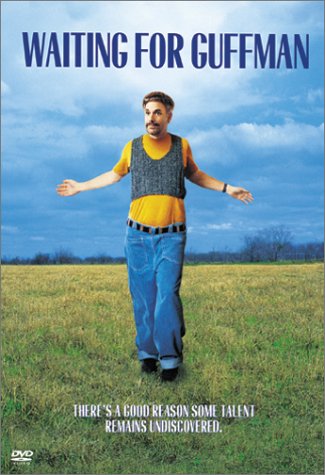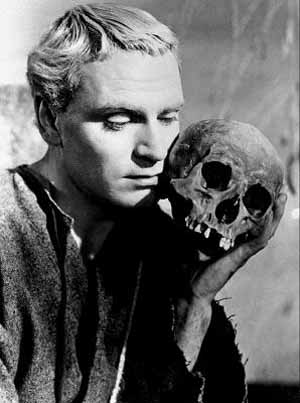"I met this girl, when I was 10 years old
And what I loved most, she had so much soul."
Welcome to the world of the extended metaphor. Population? This guy:

Common: 'Sup, ladies?
The extended metaphor is one of the trickiest and most effective conventions in all of poetic writing. Through the extended metaphor (also known as a "conceit,") the author will take one simple line's worth of a flowery comparision, and stretch that sucker out over the course of each of the lines to follow.
Here's a handy Wikipedia example to hammer the point home:
If one starts with the metaphor of "The seeds of discontent have already been sown", an extension could be "It remains to be seen whether weeds or flowers will spring forth."Basically, the extended metaphor allows the author to use a bunch of familiar and related images in quick succession in order to convey a much bigger and much broader message. And when executed properly, it's wickedly clever.
Since this blog is of a musical and pseudo-literary bent, we'll pick a brief contemporary example of the extended metaphor as we make our way into today's analysis. Please welcome...

Sylvia Plath: Why are the best girls always crazy?
In addition to being something of a headcase, Sylvia Plath was an absolute master of the extended metaphor technique. Throughout so many of her poems, Plath takes what might otherwise be a simple, throwaway line of comparison and borrows against it two, three and four times in the stanzas thereafter -- each time compounding the richness of the original imagery, and taking her readers further into the complexities of the figurative language at her disposal.
Plath's most famous poem?
"Daddy" -- a scathing, heart wrenching epic in which the poet paints herself as a Jewish prisoner in a concentration camp while likening her long-dead father to a goosestepping Nazi soldier. She's like a foot in an old shoe, or a captive waiting execution, trapped in a violent and oppressive world beyond her own creation, with no chance of escape save for death itself.
(In a grim but tragically fitting end to this story, Plath's "trapped like a prisoner in a Nazi camp" poem just so happened to be written shortly before the poet took her own life in 1963, by -- get this -- sticking her head in an oven and cranking up the gas).
Yeesh.
I think that's enough about gloom and doom for one day, yes? After all, extended metaphors needn't always be so somber and macabre. So let's switch gears and get back to Common's "I Used to love H.E.R" -- which is, thankfully, an extended metaphor of love and admiration, with a killer beat and a much-needed upshot of hope, to boot.
On the surface, "I Used to Love H.E.R." is a simple tale of growing up and falling in love with a girl with some crazy talent and some mad skills.

Lauryn Hill: Proof that the best girls are always crazy, exibit B.
Common starts the song with a Springsteen-esque reflection on his "Glory Days" of yesteryear. Not suprisingly, we soon find ourselves smack-dab in the middle of a story of young love:
"I met this girl, when I was 10 years oldAt first listen, this boy-meets-girl story is pretty straightforward, really. And in the lines that follow, Common brings up a few additional traits about this gal that he likewise happened to admire from back in the day. She's "not a church girl," she's "not about the money," and even though she's occasionally found herself mixed up "in the park" with the wrong crowd -- she's still "underground / original, pure untampered and down."
And what I loved most, she had so much soul
She was old school, when I was just a shorty
Never knew throughout my life she would be there for me"
In short -- she's real. And it's no wonder that Common comes right out and says he "respected her."
Over the course of the second verse, this "respect" blossoms into enlightenment, and the songwriter finds himself learning all sorts of stuff about himself, his people, and his heritage as he gets closer and closer to this mysterious stranger. It's a pretty great gig, really -- and the singer and the girl seem to be growing together as they grow older. He follows the girl from the schoolyards to the "clubs" and "house parties," and it seems like things are really starting to click. But then life throws him a curveball and they're forced apart.
Common "went away to school" while "she broke to the West Coast" -- presumably to follow her dreams. But the funny thing about big cities, however, is that so many folks can end up losing sight of themselves as they get caught up in such a brave new world.

Gratiutous photo interruption. Helps break up giant walls of text, ya' know.
Such was precisely the case for the girl in Common's verse, whose move to Los Angeles results in a complete change of character, as she ends up shying away from her roots only to say that "pro-black, was goin out of style" and that "Afrocentricity, was of the past." Something's changed in this girl -- and perhaps it's not entirely for the best (Common actually comes right out and calls it "foul" just one line earlier) -- but life goes on, and the songwriter knows when to back off so as to let his erstwhile lady love find herself in due time
(Personal growth, of course, is a funny thing. And right about this time, the girl's earlier missteps actually pay off as she ends up "becomin' well-rounded" thanks to a burgeoning interest in "R&B, hip-house, bass, and jazz" -- not to mention that all-important "freestyle shit." In other words -- yeah, she's changed, but the respect is still there.)
But respect is the kind of thing that can take a lifetime to build and only seconds to destroy, and the third verse does a pretty fine job of demonstrating how quickly this girl came close to falling out of favor with our balladeer once the big city'd had her way with her. As he says:
"I might've failed to mention that the chick was creativeTranslation?
But once the man got to her, he altered the native
Told her if she got an image and a gimmick
That she could make money, and she did it like a dummy"

Common ain't impressed by the girl's increasingly transparent attempts to appear "real." He sees her talking out of both sides of her mouth, and swearing up and down "how hardcore and real she is," but he's not buying it. After all, Common's known the girl for years, and still he can't help but remember that "she was really the realest before she got into show-biz."
For all intents and purposes, the girl has prostituted herself to the lowest bidder (to the point where she's getting "slamm[ed]" in "the sewer" -- classy, no?). And Common knows that she deserves a whole lot better. Presumably, that's why he closes the song with a pledge to make one final attempt to save his girl from this inauthentic waste of an existence that her life has become. Yeah, she's sold herself cheap -- but like he says:
"But I'ma take her back hopin that the shit'll stopWait wait wait -- HE'S TALKING ABOUT HIP HOP!?!
Cause who I'm talkin bout y'all is hip-hop"

And one more time, the extended metaphor rears its gorgeous head.
Common wasn't singing about when he "used to love her" (as in a real, live, actual girl) -- he's talking about when he "used to love H.E.R." -- a metaphorical female stand-in for all that is, was, and has become hip-hop music (some interviews suggest that Common's "H.E.R." acronym actually stands for "Hip-hop in its Essence is Real," while others have argued that it may simply be shorthand for "Hearing Every Rhyme").
In any case -- the conceit delivers on its intended purpose, and the deeper message of the song is well-taken:
Hip hop music was born of the soul music tradition. It started humbly in the streets and the parks. It rediscovered its roots in the house parties and the clubs. It jumped to the West Coast and gave way to all sorts of freestyle and R&B influences. And then it ultimately sold out its very nature by becoming a self-parody through endless scads of thug rap and gimmicks.
For Sylvia Plath?
The world had become so screwed up that her hope of escape was death itself.
But for Common?
Hip hop has indeed become a parody of what it once was -- but it can still be saved by way of a soulful, heartfelt, and authentic re-examination of its roots.






























